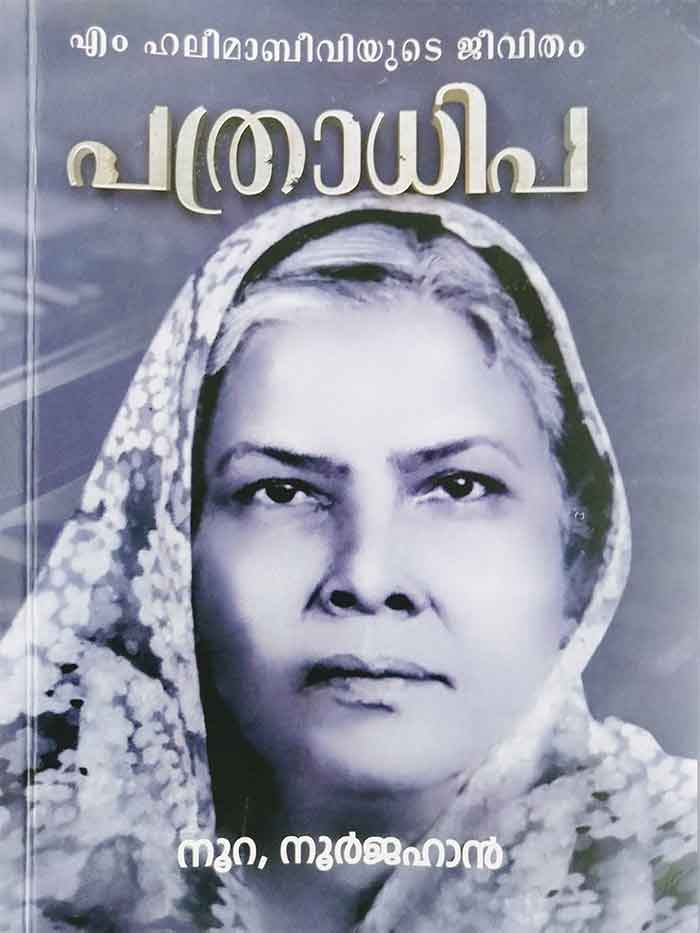There has been a proliferation of literature on women, including women’s history across the world. Yet, women remain mostly invisible or misrepresented in mainstream history. They are either not present at all, or they are portrayed as innately ‘inferior’ and ‘subordinate,’ as perpetual victims of male oppression. This has been a pattern across nations and continents for long. Consequently, the role and engagements of women have rarely been registered in the historical literature.
However, mainstream history has come under severe criticism in recent decades—from different levels—for its inherent bias and prejudices towards women and marginalised sections. The very historiography of such top-down enterprise is seen as essentially a male-centred activity. This is true of the renaissance history and literature too. Kerala with its century-old history of social movements and democratic struggles is not an exception.
The discussion organised by the Vakkom Moulavi Memorial and Research Centre (VMMRC) on the theme Haleema Beevi and Kerala Renaissance has opened up a fresh debate about this scenario of marginality in mainstream history of Kerala.
Speaking on the subject, Dr. Khadija Mumtaz, noted writer and Vice President, Kerala Sahitya Akademi, said that “Women and the Dalits found hardly any significant place in the mainstream history of Kerala” because of the way the very history was written and “it remains a travesty of the state’s renaissance achievements.”
Dr. Mumtaz said that “as long as writing history is a prerogative of the privileged sections and castes, such exclusions of women, Dalits and backward communities would prevail. But we tend to forget the fact that the very renaissance of Kerala began with the struggles of the depressed classes and castes,” she pointed out.
According to Dr. Mumtaz, “The other dimension of renaissance narrative is equally problematic. For example, the role of women in Kerala’s renaissance was obliterated due to many factors. Even as we discussed the pioneering role of Vakkom Moulavi and Swadeshabimani Ramakrishna Pillai, we almost excluded their own disciples among the womenfolk.”

Haleema Beevi (1918-2000), for instance, was the first Muslim woman editor of Kerala who faced resistance and harassment from within and outside her community. She also stood firm despite threats and intimidation from authorities like CP Ramaswamy Iyer. “Sadly, Haleema Beevi, a person with multilevel engagements and achievements in journalism and social service for long, passed into oblivion.”
Dr. Mumtaz said that this happened in other movements also. “While Poykayil Appachan has been rightly held in esteem, his life-partner Janamma who led the spiritual movement for decades after his death, seldom emerged in the renaissance history. Very bold women like Kumarakom Chinna and others also fell into oblivion.”
Dr. Mumtaz noted that Haleema Beevi had to confront two levels of challenges—as a woman as well as a Muslim. She lived in a period when Muslim girls were not even permitted to go to school. As such she had to go to school with the escort of some people to protect herself.
However, Haleema Beevi’s life was a history of struggle and determination. She became the editor of her first venture in journalism, Muslim Vanitha in 1938 when she was only 20. Despite financial losses and resistance from the orthodox sections of her own community, Haleema Beevi remained resolute and committed. She also launched Bharatha Chandrika in 1944. Prominent writers of that period, like Thakazhi Sivasankara Pillai, P Kesavadev, G Sankara Kurup, M P Appan, P Kunhiraman Nair, O N V Kurup, S Guptan Nair and N Balamaniamma were regular contributors. Vakkom Abdul Kadir and Vaikkom Muhammad Basheer were also on the editorial board of the publication. Haleema Beevi also started another monthly Vanitha and, in 1970, she launched another publication Adhunika Vanitha.
Dr. Mumtaz said that “the fact that Haleema Beevi also served as a municipal councillor in Thiruvalla, in the late 1930s and early 1940s, was a testimony of her committed social engagements and organisational capacity. It was also a fact that Haleema Beevi was a forerunner of Islamic feminism in Kerala. However, it remains a mystery and embarrassment that we did not have a recorded history of her life and struggle till Noora and Noorjahan wrote her biography recently.”
Speaking on the challenges of writing Haleema Beevi’s biography, Noora, a writer and teacher, said that woman as an agency had multiple challenges in society and hence her own biographical details found no place in the archives of history. Haleema Beevi is only an example and there could be any number of such characters in history. According to Noorjahan, the co-author of the book, who is also a research fellow at the Tata Institute of Social Science, Haleema Beevi remained obliterated in our cultural history because of her identity both as a woman and Muslim. Many Muslim organisations and groups who were so proud of their ‘renaissance past’ also conveniently ignored her, she said. Though women’s issues have emerged in the centre-stage of our public life and Islamic feminism has made much headway over years, these organisations are reluctant to step in and acknowledge such contributions. The biography of Haleema Beevi is only a beginning, and her multilevel contributions need to be registered in the cultural history of Kerala, Noorjahan noted.
Dr. B. Ekbal, Dr A.K. Ramakrishan, Mujib Kinalur, Muhsin, K.M. Althaf and others took part in the discussion. Dr. Shahina Javad and Shabeera Seethi coordinated the programme.
The author is Director, Inter University Centre for Social Science Research and Extension (IUCSSRE), Mahatma Gandhi University, Kerala. He also served as Dean of Social Sciences and Professor of International Relations and Politics, Mahatma Gandhi University. The author also writes for Global South Colloquy. He can be contacted at [email protected]
GET COUNTERCURRENTS DAILY NEWSLETTER STRAIGHT TO YOUR INBOX














































